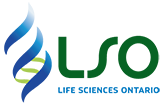Through artificial intelligence (AI) and machine learning, we are able to take advantage of vast amounts of data to make better decisions and even predict and address problems before they arise. With automation, we replace repetitive, time-consuming tasks with more efficient processes, enabling us to devote more time to other projects. Together, these technologies have made a large and lasting impact on our ability to advance research, manage information, adapt to change and better serve human needs.
Applications in Healthcare, Life Sciences & Agriculture
For most people, it’s hard not to go a day without AI, machine learning and automation affecting some aspect of our lives. This goes beyond consumer goods like self-driving cars and voice-activated entertainment systems — it’s playing a profound role in industries like healthcare and the life sciences.
“AI, machine learning and automation have a very key role to play in healthcare,” said Shelley Epstein, vice president of corporate and public affairs at AI healthcare company, Imagia. She brings over two decades of industry experience to her role at the Montreal-based business. In her role, Epstein initiates strategic partnerships with government and non-governmental organizations on AI collaborations and global healthcare. Earlier this year, she co-led Imagia to achieving a $49 million Canadian government, Strategic Innovation Fund (SIF) grant. This award included 97 consortium partners to support a Digital Health and Discovery Platform (DHDP) that will combine Canada’s expertise in AI and precision medicine to improve healthcare for Canadians. The platform will run on Imagia’s proprietary AI EVIDENS platform.
“When you consider the care pathway, disruptive technologies can intersect and will play a pivotal role at all stages, from preclinical to patient management. These advances will help us move ahead to truly personalized healthcare.”
Epstein and other esteemed panelists participated in a discussion about the effects of AI, machine learning and automation on the bioeconomy at the Life Sciences Ontario (LSO) 10th Annual Policy Forum earlier this month. In an interview with Xtalks, she explained how AI can save critical time in patient care.
“Think about a patient’s journey. From the moment symptoms appear, the diagnostic pursuit begins for healthcare practitioners to make an early and correct diagnosis while identifying the right treatment at the right time. This odyssey within serious diseases is a race against time for your life; AI in healthcare has the potential to give back critical time, improve patient outcomes, and prolong life.”
The healthcare and life sciences are not the only ones to recognize and leverage the power of technology. The University of Guelph’s vice president of research, Malcolm Campbell, told Xtalks how these technologies are applied in the agriculture and food sector.
“Automation is an obvious one: from autonomous tractors that drive themselves and allow us to plant crops, to robots that are actually being used to pick fruit and vegetables, to the employment of drone technologies to monitor how crops are being grown and make real-time management decisions. Artificial intelligence and machine learning are used to manage both crops and livestock, as well as all areas of food processing.”
Just as in healthcare and life sciences, these technologies are being applied to make the agri-food sector safer and more efficient.
“These digital technologies are used to monitor food from field to fork so that we are able to ensure important values like sustainability, traceability and authentication,” he added.
While a multitude of other industries benefit from AI, machine learning and automation, the healthcare, life sciences and agriculture sectors have unique and direct impacts on human welfare. At this pace, the advancement of medicine and food production will be affected by the successful adoption of AI, machine learning and automation technologies. Disruptive change of this magnitude, however, will require major shifts/changes within an organization.
New Technology Means New Hires
While new technologies like automation can make some roles in an organization redundant, they can also bring about new specialized jobs and create opportunities for qualified individuals. Pharma and biotech companies are no strangers to change — in fact, many successful treatment paradigms are born out of bold ideas or new discoveries that challenge the status quo. As more companies integrate these technologies into their pipelines, those who won’t adapt are likely destined to fail.
“Adapt is intimately tied to a word that differs only from adapt by one letter, and that’s adopt,” said Campbell. “I think [life sciences companies are] going to have to be prepared to adopt those technologies to take a look at how they can be brought on board and utilized within the context of their business.”
To implement these technologies, companies require different infrastructure — not only shiny new computers and robotics, but a new breed/set of workers.
Thirty years ago, jobs like ‘AI/machine learning specialist’ did not exist in pharma and biotech companies. But with the increasing adoption of these transformative technologies, many companies are actively seeking tech-savvy individuals to fill highly specialized roles.
“I think that the time has come [for] pharma, biotech, and the industry, in general, to start tapping into different skill sets and seek insights from outside of the industry,” said Epstein. “Be receptive to diversity in terms of talent and think outside the box. In particular, be open to dual-domain expertise, so that you don’t just tap into the healthcare side, but also look for individuals with technical backgrounds too.”
The pressure to find the right kind of talent continues to mount as healthcare companies start facing competition from tech giants like Apple and Amazon who are advancing into the digital healthcare space. These companies have an advantage over pharma and biotech companies as they already have teams of AI, machine learning, automation and digital experts at their disposal.
One of the challenges life sciences companies are facing is where to find the right kind of talent. Unsurprisingly, Campbell, who works at a post-secondary institution, says that partnering with academia is the answer.
“I think a great opportunity is [to work] together with partners like academic institutions that can help de-risk that adoption,” he explained. “Post-secondary education institutions are in the business of creating the human resources that HR departments are going to hire. I think incredible partnership is needed. These are highly-skilled labor jobs — not jobs where someone is going to be able to watch a YouTube video and be able to figure out what it is that they need to do to address industry needs. Industry needs to be very crucially and tightly partnered with K-to-12 educators as well as post-secondary education institutions, colleges and universities alike.”
Another concern is the displacement of human jobs, an idea propagated in Hollywood movies. Campbell, an optimist, believes that these technologies will have an opposite effect.
“I think the biggest impact that these are going to have is that they’re going to create a suite of jobs that we have never envisaged before. It’s not necessarily the primary jobs that are going to emerge from people that are working directly on AI or directly working on machine learning or directly working on automation, it’s going to be the whole suite of ancillary jobs that we can’t even imagine now that they’re going to come available through the adoption of those technologies.”
To him, the dawn of AI, machine learning and automation is akin to the invention of automobiles.
“Just as people were concerned when the transportation industry was being converted from horse power to another kind of horse power —automotive horsepower — they were concerned about the kind of jobs that were going to be displaced. Nowadays, we don’t have a farrier at every corner, but we do have an entire new industry that was born out of that transformation of transportation a century ago. The same thing is going to happen here.”

Life Sciences Ontario (LSO) is a member-funded, not-for-profit organization with a legacy of more than 25 years advancing the success of Ontario’s life sciences sector. LSO collaborates with governments, academia, industry, and other life science organizations in Ontario and across Canada to promote and encourage commercial success throughout the sector. The organization provides a wide range of networking and educational events, and operates a mentorship program that is helping to develop highly-skilled talent and build new business opportunities for the life sciences sector. LSO is an effective conduit for delivering policy options to governments, and is dedicated to promoting Ontario’s life sciences sector internationally.











Join or login to leave a comment
JOIN LOGIN